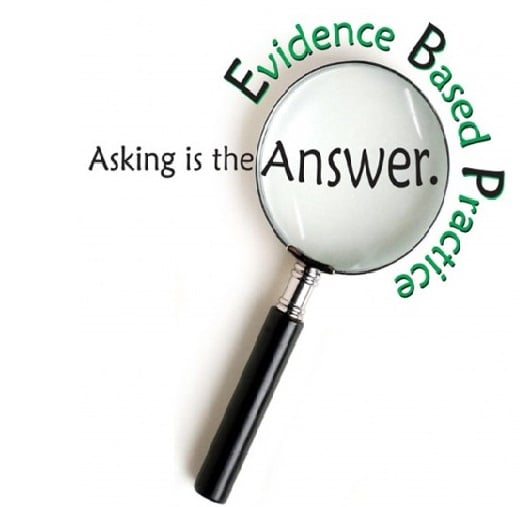Evidence-Based Practice
About Evience-Based Practice

Evidence-based practice is an approach to health care wherein health practitioners use the best evidence possible, i.e., the most appropriate information available, to make decisions for individuals, groups and populations.
Evidence-based practice values, enhances and builds on clinical expertise, knowledge of disease mechanisms, and pathophysiology. It involves complex and conscientious decision making based not only on the available evidence but also on client characteristics, situations, and preferences. It recognizes that health care is individualized and ever changing and involves uncertainties and probabilities.
Evidence-based practice incorporates successful strategies that improve client outcomes and are derived from various sources of evidence including research, national guidelines, policies, consensus statements, systematic analysis of clinical experience, quality improvement data, specialized knowledge and skills of experts.
Why is evidence-based practice important?
In order for dietitians to remain competitive within the health care, education and business arenas, they must incorporate evidence-based practice into their day-to-day activities and decisions. Evidence-based practice enhances credibility with other healthcare team members and will help dietitians be more effective and efficient in their practice.
- Explosion of literature: Health care literature is published at a rate that is impossible for individual clinicians to keep up with. By using evidence-based resources, like the EAL©, evidence-based decisions can be made in a focused and time-efficient manner.
- Unmet information needs: Questions from patients, clients and other stakeholders are continuously being generated. However, the information needs of practitioners are not being met. Due to limitations of time, information resources, search skills, and funding, many questions go unanswered. Synthesized evidence-based resources are easy to use and help to quickly connect evidence-based answers to questions.
- Avoids Implementation delays: Research findings are often delayed in implementation. Evidence-based practice resources take into account evidence from a wide variety of fields and provide an opportunity for greater exposure to evidence.
- Quality and effectiveness of practice: Evidence-based practice can help to standardize practice so that outcomes data can be collected and analyzed in order to continue to improve the quality and effectiveness of practice.